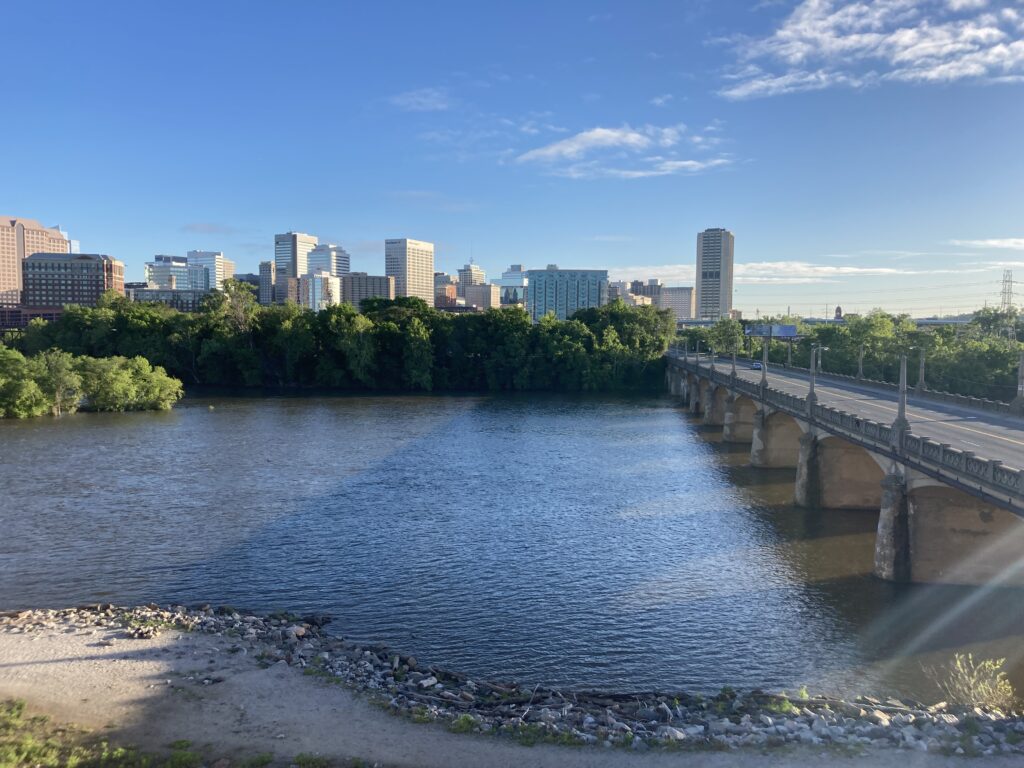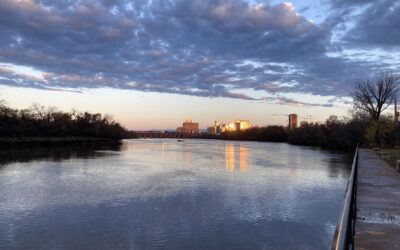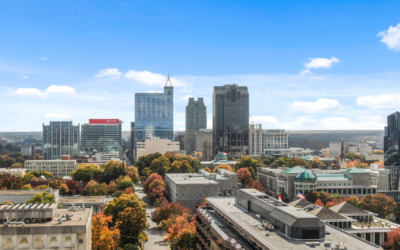Virginia Moving Guide

Virginia may be one of the most underrated states in the country. There, we said it. From the dynamic urban living of Northern Virginia, to the gritty mid-Atlantic charm of Richmond, to the beaches of Tidewater and the mountains of western Virginia, it really does have it all. Here’s a few things you should know:
What should I know about moving to Virginia?
1. Cost of Living: Virginia’s cost of living is generally higher than the national average. Housing costs can be particularly high, especially in urban areas like Northern Virginia.
2. Climate: Virginia has a humid subtropical climate, with hot summers and mild winters. Be prepared for occasional hurricanes, and winter storms in the higher elevations.
3. Traffic: Northern Virginia has some of the worst traffic in the country, particularly during rush hour. Consider proximity to work and traffic patterns when choosing a neighborhood.
4. Job Market: Virginia has a strong job market, with a diverse economy that includes government, military, technology, and healthcare sectors. However, competition for jobs can be high.
5. Education: Virginia is home to several top-ranked universities, including the University of Virginia and Virginia Tech. The state also has a strong public school system.
6. Cultural Attractions: Virginia has a rich history and culture, with many museums, historical sites, and festivals throughout the state. It is also known for its wineries and craft breweries.
7. Outdoor Activities: Virginia has many opportunities for outdoor recreation, including hiking, camping, fishing, and skiing in the Appalachian Mountains.
Overall, Virginia can be a great place to live, but it’s important to carefully consider factors like the cost of living, job opportunities, and location before making a move.
Why are people moving to Virginia??
There are several reasons why people may be moving to Virginia. Some factors that make Virginia an attractive place to live include:
1. Job opportunities: Virginia is home to major companies such as Amazon, Capital One, and Northrop Grumman, which provides a wealth of job opportunities.
2. High quality of life: Virginia consistently ranks as one of the best states for quality of life, with access to cultural attractions, natural beauty, and excellent schools.
3. Affordable living: While some areas of Virginia can be expensive, there are many affordable options across the state, especially in rural areas.
4. Mild climate: Virginia has a mild climate with four distinct seasons, making it an ideal place for outdoor activities.
5. Proximity to major cities: Virginia is located near major cities such as Washington D.C., Richmond, and Virginia Beach, providing easy access to urban amenities.
How many people are moving to Virginia each year?
According to the United States Census Bureau, Virginia had a population of around 8,523,000 in 2019, which was a 7.9% increase compared to 2010. However, it is difficult to accurately determine how many people are moving to Virginia each year, as it depends on various factors such as job opportunities, cost of living, and other personal reasons for relocation.
What cities in Virginia are seeing the most people moving to them?
According to recent census data, some of the cities in Virginia that are seeing the most people moving to them include:
1. Richmond
2. Virginia Beach
3. Alexandria
4. Chesapeake
5. Norfolk
6. Arlington
7. Newport News
8. Fredericksburg
9. Harrisonburg
10. Roanoke
These cities offer a variety of attractions including job opportunities, a strong economy, cultural events, and a good quality of life. However, the best city for you to move to depends on your personal preferences and needs.
What are the advantages to living in Virginia?
There are several advantages to living in Virginia. Here are a few:
1. Natural Beauty: Virginia is known for its natural beauty, from the mountains in the west to the beaches in the east. The state is home to several national and state parks, including Shenandoah National Park and Great Falls Park.
2. Rich History: Virginia played a significant role in the history of the United States, serving as the site of many key events during the American Revolution and the Civil War. The state is home to several important historical sites, including Mount Vernon, Monticello, and Jamestown.
3. Educational Opportunities: Virginia is home to several excellent universities and colleges, including the University of Virginia, Virginia Tech, and William and Mary. The state also has a strong public school system.
4. Job Opportunities: Virginia’s economy is diverse, with strong industries in technology, defense, and healthcare. Companies such as Amazon, Capital One, and Northrop Grumman have a significant presence in the state, providing job opportunities for residents.
5. Quality of Life: Virginia has a high quality of life, with low crime rates, good healthcare, and a strong sense of community. The state’s cities, such as Richmond and Virginia Beach, offer a mix of urban and suburban living options. Additionally, the cost of living in Virginia is generally lower than in other East Coast states.
What are the disadvantages to living in Virginia?
There are a few potential disadvantages to living in Virginia you may want to consider:
1. Cost of living: Virginia is generally more expensive than the national average, especially in areas like Northern Virginia and the urban centers of Richmond and Virginia Beach.
2. Traffic: Virginia is home to some of the worst traffic in the country, particularly in the I-95 corridor and around major cities.
3. Weather: While Virginia generally has mild winters, summers can be hot and humid. The state is also prone to erratic weather patterns, including hurricanes, tornadoes, and severe thunderstorms.
4. Natural disasters: Virginia is at risk for a variety of natural disasters, from hurricanes and flooding to earthquakes.
5. Limited public transportation: While Virginia does have public transportation options, they can be limited in more rural areas or outside of urban centers, making owning a car a necessity for many.
What are taxes in Virginia like compared to other states?
When it comes to state income taxes, Virginia is in the middle of the pack. For the tax year 2020, the income tax rates range from 2% to 5.75% depending on the individual’s income level. Virginia also has a statewide sales tax rate of 5.3%, along with additional local sales taxes that vary by county and city. Property taxes in Virginia are also relatively moderate compared to other states, with an average effective property tax rate of 0.80%. However, it’s important to note that tax rates can vary greatly depending on the specific locality within Virginia.
How are schools in Virginia compared to other states?
Virginia’s schools are generally highly regarded compared to other states. It consistently ranks near the top in national education studies, including recent studies from U.S. News & World Report and Education Week. The state also has a strong emphasis on education funding and supporting teacher training and professional development. Additionally, Virginia has a diverse range of educational options including public, private, charter, and magnet schools. It’s important to note that school quality can vary by district, so make sure to research specific schools in the area you are interested in.
What is the weather in Virginia like?
The weather in Virginia is generally pleasant with all four seasons. Summers are hot and humid, with average temperatures in the 80s°F (27°C) and occasional thunderstorms. Winters are cold, with average temperatures in the 30s°F (-1°C) and occasional snowfall. Spring and fall are mild with comfortable temperatures and colorful foliage. However, Virginia is also susceptible to hurricanes and tropical storms during summer and early fall seasons, especially along the coastal areas.
Good Luck with your move!
We hope this list has helped! If you need any assistance with your long-distance moving needs, give us a call! We’re more than happy to make your move an easier one.







Recent Comments